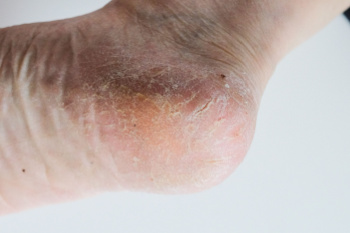
Cracked heels can be more than just a cosmetic concern, as they can often indicate underlying medical conditions that require attention. One common reason for cracked heels is dry skin, which occurs when the skin lacks moisture and becomes thick and rough, leading to fissures and cracks. However, several medical conditions can exacerbate this issue. For instance, eczema and psoriasis can cause dry, itchy skin that may lead to cracking, while thyroid disorders can disrupt the body's ability to produce adequate oils, resulting in dry skin. Diabetes is another significant contributor, as it can lead to nerve damage and poor circulation, making the skin more susceptible to dryness and cracking. Additionally, fungal infections such as athlete's foot can cause dry, flaky skin on the heels, which may crack if left untreated. If you have developed cracked heels, it is suggested that you visit a chiropodist who can effectively treat this condition, in addition to determining what the cause is.
Dry, cracked heels are more than a cosmetic inconvenience. For many people, they are uncomfortable, deep, painful, and may even bleed. If you suffer from cracked heels, please consult with one of the chiropodists from Complete Family Footcare & Therapy. Our clinicians can help you maintain the health of your lower limbs and your mobility.
Causes
Prolonged standing
Wearing open-back shoes
Wearing shoes that don’t cushion the heels
Living in a cold or dry climate
Taking long, hot showers
Not moisturizing the heels
Eczema
Psoriasis
Palmoplantar keratoderma
Juvenile plantar dermatosis
Treatments
Soaking the feet
Exfoliating with a pumice stone
Moisturizing the heels
Wearing closed-back shoes that cushion heels
Avoiding prolonged standing
Taking warm, rather than hot, showers
Treating underlying skin conditions
While milder cases of cracked heels can be treated at home, some patients present with deep, painful, bleeding heel fissures that are at risk of becoming infected and may require medical care. Additionally, patients with diabetes or any other conditions that affect the immune system should be monitored by a chiropodist.
If you have any questions, please feel free to contact our offices located in . We offer the newest diagnostic and treatment technologies for all your foot care needs.
